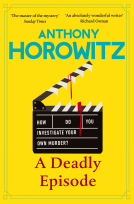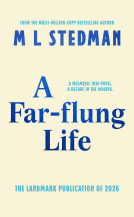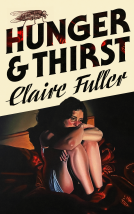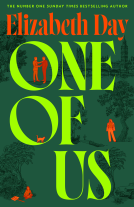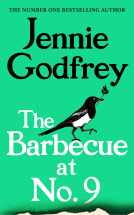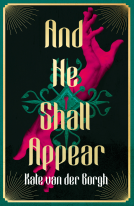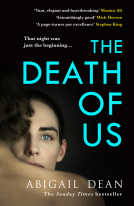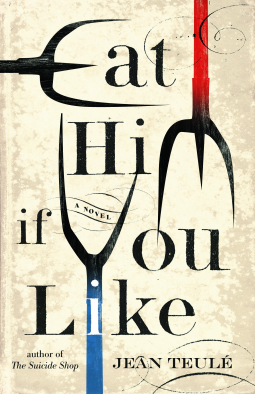
Eat Him If You Like
by Jean Teule
This title was previously available on NetGalley and is now archived.
Send NetGalley books directly to your Kindle or Kindle app
1
To read on a Kindle or Kindle app, please add kindle@netgalley.com as an approved email address to receive files in your Amazon account. Click here for step-by-step instructions.
2
Also find your Kindle email address within your Amazon account, and enter it here.
Pub Date 1 Nov 2011 | Archive Date 22 Oct 2015
Description
Advance Praise
France's most esoteric comic novelist has taken a grisly portion of the country's history and served it up as a grim, memorable dish ... It's true. It's horrible. It's an extraordinary tale. --Independent on Sunday
Available Editions
| EDITION | Paperback |
| ISBN | 9781906040390 |
| PRICE | £6.99 (GBP) |
Average rating from 26 members
Featured Reviews
 Gena D, Educator
Gena D, Educator
It's unfathomable how a small village full of peaceful country folk can suddenly become a raging mob that would not only kill a much loved neighbor, but eat him as well! What evil lurks in the heart of men!
Thank you, Jean Teule, for bringing us the true story of the death of Alain de Moneys.
 Librarian 71930
Librarian 71930
Shocking, disgusting, and horrifying. I can't recommend it because it made me physically ill.
My view 5 stars stand for the author, Jean Teule, an erudite, wonderful writer.
I am afraid this translation will keep many from pursuing this author any further, which would be indeed a mistake. " Eat Him If You Like " is a historical novel. Yes it is hard to read, as are many horror novels we devour ( no pun intended ). Why does this story disgust us ? The fear that we humans are able of such attrocities? We know to well in 2015 that it is so.
The time period was a time of war, change and uprising in France. The goodhearted man found himself surrounded by an illiterate mob in a neighbouring village to his own, certainly a tragic step . In times of upheaval, what might seem right otherwise, can send an uneducated mob to do what ordinarily they would not envisage.
Perhaps the visuals we receive today, via internet do not affect us as much as the written word when such atrocities happen...
Thank you to Gallic Books and NetGalley for this copy in return for an honest review
 Annie S, Librarian
Annie S, Librarian
Eat Him if You Like, by Jean Teulé, would be horrifying enough even if it hadn’t been based on an actual event in the not-too-distant past. Alain de Monéys was the son of local gentry, visiting the village of Hautefaye for the annual fair. Almost immediately after he arrived, de Monéys was beaten, tortured, and burned alive. The mayor of Hautefaye was quoted (as he is in the book) as saying when asked what to do with de Monéys, “Eat him if you like.”
This short novella dramatizes what happened to de Monéys on 16 August 1870. Teulé even includes maps of the village. “Stops” are marked, with each chapter reporting on what new horror was inflicted on de Monéys there. It all began with a misunderstanding. The people of Hautefaye—as depicted in Eat Him if You Like and the small bits of the historical record I’ve actually looked at—were patriotic. The Franco-Prussian War had broken out more than a month before de Monéys’ murder. By August, things were not going well for France. Prussians were in French territory. Hautefaye villagers were behind the times, only just hearing the bad news. During the investigation and trial, the perpetrators claimed that de Monéys had been making anti-French/pro-Prussian remarks.
The alleged remarks were a catalyst. Hautefaye’s people became a mob. They could not be reasoned with. They could not be stopped. A few people tried to help de Monéys, risking their own lives to no effect. The mayor, as mentioned above, didn’t even try to save de Monéys. As if being beaten and tortured and burned to death, there were some convincing rumors that a few of the murderers actually put the mayor’s “advice” and ate parts of de Monéys. Teulé does not put us in de Monéys’ head; Eat Him if You Like is mercifully told from a remote third person perspective.
The first arrests happened three days later. The Affaire de Hautefaye (Wikipedia article in French) concluded the following spring. Four men were sentenced to death by guillotine. The rest of the 21 defendants were sentenced to prison and/or hard labor. Only one was acquitted, mostly because he was 14 at the time of the murder.
I’m not worried too much about spoiling the plot of Eat Him if You Like, mostly because it’s an actual historic event. The facts are not why someone would read Teulé’s book anyway. This book captures the futility of fighting a mob. Like many other mobs in history, it has to exhaust itself before it transforms back into individuals. The ability to form a mob is a dark part of human psychology that we don’t fully understand. As Eat Him if You Like portrays it, not even the people in the Hautefaye mob knew what happened once they came to their senses. The news about the war and the comments de Monéys may or may not have made were the “reason” for the mob’s violence, but it doesn’t fully explain what happened on 16 August 1870. We know the details of what happened, but we will never really know why they happened.
I received a free copy of this ebook from NetGalley, in exchange for an honest review.
 Susan R, Reviewer
Susan R, Reviewer
It is horrifying to think that this novella length book is actually based on a true story, but sadly this is taken from factual events. A young man wakes in his house in the French countryside full of joy. It is 1870 and he is soon going to join the army and fight against Prussia, but, before that, he has plans to complete. He has a plan to help divert the river in order to help his local community. There are neighbours he wants to see and some he needs to help. So, rather than staying for lunch with his parents, Alain de Moneys sets out for the local fair at Hautefaye. It is an event he has never missed and he knows all the locals. However, it is soon evident that there is unease in the air. A war that is going against France, a drought that is affecting the people and financial worries.
Still, Hautefaye is only two miles from Alain de Moneys home and he is a respectable, and much respected, young man. His family are known in the community and Alain is a very modest and honourable person – a man who refused to buy a ‘lucky’ ticket from a poorer neighbour to avoid going to war, despite the fact that he has a bad leg. All should have been well, but when Alain’s cousin stirs up a volatile crowd and Alain’s words are mis-heard, what unfolds is so barbaric that, at times, it is hard to read. Alain is set upon by a mob, many of whom know him, but they lose control and turn upon him as if he were their worst enemy. I have to say that you should only read this book if you have a strong stomach, but it is an important book about the volatility of a mob and of the unspeakable actions that can result from this kind of group hysteria. It saddened and shocked me, but shows us the worst of humanity and group behaviour. Lastly, I received a copy of this book from the publisher, via NetGalley, for review.
Well, that was harrowing.
Based on a true story, this is a short, straightforward novelization of a horrific day in 1870 small-town France. In what might be the apotheosis of the phrase "mob mentality," a number of townspeople ganged together to beat, torture, mutilate, and eventually kill one of their neighbors, a young man whom many of them had known growing up, apparently under an ephemeral but entirely baseless conviction that he was a Prussian spy. (The Franco-Prussian war ended a few months later.)
The contemporaneous autopsy report verified he was still alive when the mob finally decided to burn him to death. The records from the subsequent trial indicate that the participants on the whole were flabbergasted by what they had done.
If you need reminding that humans can do unspeakable, unthinkable things to each other simply because they get caught up in the moment, this is the book for you. It won't take you long -- it's only about 100 pages.
But, holy crap, it will stick with you for a long time, and possibly give you nightmares.
As a side note, possibly because this book is translated from the French, some of the sentences are overly formal and stilted. It reads more like a history text than a novel, though personally I prefer that, as it kept some of the horror slightly at bay.
I received a complimentary copy of the English translation of this book from the publisher in exchange for my honest review.
 Deborah C, Reviewer
Deborah C, Reviewer
Eat Him If You Like is a straightforward telling of a true, and truly sickening, incident of murder and cannibalism in 19th century France. It all starts with a bit of a Monty Pythonesque comedy of errors:
"‘Now now, my friends, what’s going on?’ said Alain,
limping towards them.
‘It’s your cousin,’ explained a pedlar. ‘He shouted, “Long live Prussia!”’
‘What? No! Come now, I was standing just here, and that’s not what I heard at all! And I know de Maillard well enough to be sure that he would never say such a thing. “Long live Prussia”? That’s almost as ridiculous as shouting “Down with France!”’
‘What did you just say?’
‘I beg your pardon?’
‘You said “Down with France!”’
‘What? No, of course I didn’t!’
‘Yes, you did! You said “Down with France!”’
‘But no, I didn’t say that. I—’
‘All those who heard him cry “Down with France!” raise your hand!’ said the pedlar, addressing the people standing by the low wall.
‘Oh, I heard him say “Down with France!”’ said a voice, and a hand shot up.
Other fists were raised, five, then ten. Some villagers who may not even have heard the question saw hands go up and raised theirs too."
Unfortunately, things go downhill quickly from there.
Teulé does a good job (perhaps too good, for those with squeamish stomachs) of describing what happens from Alain's point of view, from the initial punch to his agonizing death. This seems to reflect a lack of imagination on Teulé's part, however; describing the victim's pain isn't that difficult. The more interesting perspective, and one which Teulé makes no effort to explain or inhabit, would have been that of the ordinary men and women whose own personalities became subordinated to the mob mentality.
Eat Him If You Like is a short and informative read about an obscure atrocity, but it provides no new insight into what causes a mob to coalesce and act.
I received a free copy of Eat Him If You Like through NetGalley in exchange for an honest review.
 Patty B, Reviewer
Patty B, Reviewer
In a small town in rural France in 1870, a drunken mob accused an innocent man of being a Prussian spy, and attacked and killed him, then (according to legend) ate him. This novella is a fictional retelling of the event. I figured it would be gory, but hey, Halloween is coming up! I wanted a scary book to read.
Oh, friends. What a terrible choice. First of all, there's the writing, which is incredibly stilted, to the point of being laughable. I'm not sure whether to blame the translator or if the problem was already there in the original, but someone really should have fixed it. For example:
‘What a lot of people have come for the Saint-Roch fair this year! Don’t you agree, Antoine Léchelle?’
‘Oh, good day, Monsieur de Monéys. Yes, I’ve never seen such a crowd. Twice as many people as usual. Six or seven hundred, they say, which is surprising in a village of just forty-five souls. The crowds stretch right to the other side of the village and the fair goes down to the dried-up lake.’
‘I wouldn’t be surprised if all the inhabitants of all the surrounding hamlets had decided to gather here today. Probably everyone within a fifteen-mile radius has turned up.'
YEP THAT IS DEFINITELY HOW ACTUAL HUMAN BEINGS SPEAK. A huge amount of the first chapters are this sort of info-dumping, in between sickly-sweet emphasizing of what a good person our main character is, such that it would be over the top if it was describing a Disney princess. The middle and end of the book are entirely devoted to endless descriptions of torture, to the point where it becomes almost ridiculous. Although there is sex scene to interrupt the violence:
Her soft pubic hair rippled gently, clear as day, with an inviting innocence. She sat on the trough with her legs apart, her labia laughing like a clown’s grin. The paleness of her belly could only have been stolen from the moon. It drove the boy wild. Desire swelled in his breeches like a mushroom in a field.
...yeah.
To be fair, I suppose I shouldn't have expected anything other than "endless descriptions of torture" from a book with this premise, but I guess I thought there would be a plot, suspense, explanations. Anything other than badly written grimdark torture porn.
https://www.goodreads.com/review/show/1414456163
 Robin S, Reviewer
Robin S, Reviewer
Eat Him if you Like is based upon the true story of Alain de Monéys, a young nobleman in rural France. At a faire in Hautefaye 16 August, 1790, Alain's cousin, the Vicomte Camille Maillard Lafaye reported that the war against Prussia was going poorly, and that Emperor Napoleon III would loose the war. The townspeople, many drunk already, tried to attack the Vicomte. When he and his entourage ran away, the crown turned on de Monéys. The young man was brutally attacked, tortured, and eventually burned. Some accounts claim that de Monéys was still alive while he was burned, although this can not be proven.
Jean Teule's book is based upon these accounts, describing vividly the attack, much of it from de Monéy's point of view. This book is incredibly graphic, so it may be a *huge* trigger to many people, warning in advance. It's well written, and you can actually see yourself on that hot August day. No rain for months, your crops and livestock dying, the war has been going on for years with no real end in sight...You can feel the tension in the air, the underlying anger, the barely concealed violence. Then on a hot August day it all comes to a head when a nobleman is accused of being a Prussian, the very people you blame for all your misery. The gang mentality overtakes you, causing you to do things you'd never consider doing. You forget that the person you're attacking was your friend yesterday, that he's leaving tomorrow to join the French army, that he's been taking care of your village. That no longer matters, all that matters is slaking your bloodlust.
If you're interested in history or sociology, this book may well appeal to you. It gives good insight and is a stunning example of what happens when a "mob mentality" takes over. I give the book 3 1/2 stars due to the extremely violent content, but I find it griping. Hard to stomach, but hard to put down. Once again, I must warn that it may be incredibly triggering to many people, and that did also help to decrease the rating. All in all, a well written and researched book, highly interesting from a sociological viewpoint, but not at all what I'd call light or entertaining reading.
 Irene A, Reviewer
Irene A, Reviewer
This has to be the worst, most horrible book I have read in a long while because it is a true story and this all happened. I stayed up to finish it and then couldn't sleep for thinking about it. Alain is a decent young man, a good son and happy to help his neighbours and on the 16th of August 1870 he goes off to see the Notary at the fair in Hautefaye (a tiny French village). A few days later he was due to go off to war to help fight the Prussians although he didn't need to as he had a bad leg. Someone misinterpreted what he said and from then on it was mass hysteria from an uncontrollable mob, all egging each other on and sadly the worst ones were those he had helped. This was a truly shocking book, one you don't want to be eating as you read it. So sad.
I received a copy of this book in exchange for an honest review.
The most horrifying part of this novella by Jean Tuele is that it's based on real events. I've seen a few reviews showing disappointment over how exaggerated the events are which I found a little bit surprising given that I would think most of us would hope these events were downplayed in the original scenario. Plus I would think it would be expected given that most stories based on true events (books, movies, etc.) tend to be exaggerated for entertainment value.
"'Mother, I'm almost thirty! And Hautefaye is only two miles away. I'll just go there, say hello to a few people and come straight back. See you later.'"
Oh, Alain de Moneys, if only you'd known. Alain leaves his home in the morning to attend the fair in Hautefaye and make arrangements with the citizens to help his neighbors. Unfortunately, a case of wrong place, wrong time ends in a completely blown up situation.
"'What? No! Come now, I was standing just here, and that's not what I heard at all! And I know de Maillard well enough to be sure that he would never say such a thing. "Long live Prussia?" That's almost as ridiculous as shouting "Down with France!"'"
This story is very graphic in it's details, and if your stomach turns easily, this probably isn't for you. Though the story is easy to comprehend, the language is almost juvenile at times, which makes me wonder how effective the translation is. It was easy to understand what the characters were saying but I found myself wondering "who talks that plainly, even in the 1800's?"
Overall, this isn't a bad read. It's quick, I read it in a little over an hour. You just have to be aware of what you're getting yourself into.
*This review is posted on my blog, goodreads, and facebook*
 Kel M, Media/Journalist
Kel M, Media/Journalist
In translation
Eat Him If You Like: A Novel by Jean Teulé, translated by Emily Phillips (Gallic Books, $12.95).
The Poisoning Angel by Jean Teulé, translated by Melanie Florence (Gallic Books, $15.95).
The Suicide Shop by Jean Teulé, translated by Sue Dyson (Gallic Books, $13.95).
What these novels by Jean Teulé have in common is a gift for making the absurd so understandable that we’ll question why we call it absurd–and all the while, taking a gleeful delight in the details, no matter how grotesque.
The first of these, Eat Him If You Like, is a re-telling of an actual historic event: the murder by mob of Alain de Monéys in the northern French village of Hautefaye in 1870.
Teulé begins with a description of a perfectly ordinary young gentleman having a perfectly normal summer day, one of his last before he goes to fight in Napoleon III’s ill-fated war with the Prussians. Things quickly go awry, though, and, in tone, at least, the narrative tumbles down into the most grotesque of frenzied violence.
The war is going very badly; on top of this catastrophe, there’s a natural disaster unfolding in the sort of slow apocalypse that droughts naturally take. The stressors on the population are intense, and Teulé makes that clear without in any way excusing the carnage to follow.
Reading this novel at a moment in time when economic pressures are pushing Americans to the point of considering some of Donald Trump’s proposals, it quickly makes clear how badly things can get out of control when a stressed population is given a focal point for their fears and a mob to grant some semblance of anonymity. Eat Him If You Like is fascinating in the way that the political campaign is fascinating: It’s absurd, but dangerous.
In The Poisoning Angel, Teulé moves to another moment in time and another terrifying grotesquerie. In this case, it’s a fictional re-telling of the life of Hélène Jégado, a 19th century French serial poisoner. This is intriguing both because the story is so unknown in the Anglosphere, where London’s Jack the Ripper is usually give the title of the first serial killer, and also because Jégado was female.
In this novel, Teulé starts with the Celtic culture of the Bretons, where the young Hélène is taught herb-lore by her mother, who also instills a fear of the Ankou, a demon-like assistant to Death itself.
There’s also an element of the carnivalesque here, as a pair of French wig-makers become her avid followers, snip-snip-snipping bits of hair as she kills her way through France.
Finally, The Suicide Shop, a novel set in a dystopian, climate-changed future, where suicidal despair is not only understandable, it’s the norm. The shop-keeping Tuvache family (all bearing the names of famous suicides) provide the means to make an end of it. The problem arises when the youngest Tuvache son, a boy who is born to laugh and be happy–and who insists upon spreading that joy around.
Definitely a dark comedy, The Suicide Shop has a twist ending that leads in a more philosophical direction. It’s also been made into an animated film, now on my list.
In tone, these are all sly, dry and funny books–with the humor coming in disturbing ways–and operate in that place where fables and speculations meet up with literary writing. Teulé is highly recommended for those who are not among the faint of heart.

